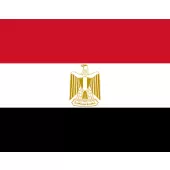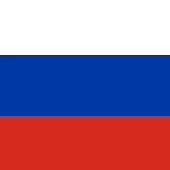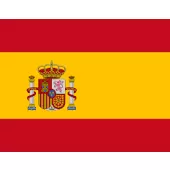
Effective solutions for settling investment disputes in Egypt and ensuring investor rights
Investment aims to achieve development and positive change, raising income levels and achieving prosperity through sustainable development. Given the presence of disputes in every field, the legislature seeks to find solutions to resolve them, while ensuring the investor's right to resort to the judiciary. It also provides optional dispute resolution options through committees such as the Grievance Committee, the Ministerial Committee for the Resolution and Settlement of Investment Disputes, and the Arbitration and Mediation Center, contributing to the creation of a stable and stimulating investment environment.
First: The Grievance Committee
Investment Law No. 27 of 2017
"obligates the General Investment Authority to establish one or more committees to consider grievances against decisions issued in accordance with the provisions of this law." This committee is responsible for considering grievances submitted by investors regarding the granting of approvals, permits, and licenses for investment projects. The committee is chaired by an advisor from a judicial authority, and includes a representative of the Authority and an experienced individual as members. This committee is formed pursuant to a decision by the relevant minister.
According to Article (83/1) of the Investment Law and Article (132) of the Executive Regulations, which states that:
The grievance must include the following information:
Name, address, and description of the grievant
The nature of the decision being appealed, the time of its issuance, and the date of knowledge of it
Attached is an explanatory memorandum detailing the reasons for the grievance and the supporting documents
A receipt proving payment for the committee's service
These grievances must be submitted within fifteen working days from the date of notification to the Authority or the date of definitive knowledge of the contested decision.
If the grievance is submitted, this results in:
The appeal period is interrupted. The Committee may contact the concerned parties and the relevant administrative authorities and request them to provide it with the documents and clarifications it deems necessary.
It may also seek assistance from the various expertise and specializations of the Authority and other administrative bodies.
The committee shall decide on the matter referred to it by a decision, which must be reasoned, within 30 days from the date of completion of hearings and clarification of the parties' views.
Article (84) of the Investment Law states:
This decision shall be final and binding on all competent authorities. This shall not prejudice the investor's right to resort to the judiciary.
The committee may, if it deems necessary, delegate the Technical Secretariat, which shall receive grievances and record them in the designated register from the date of receipt.
The complainant shall be given a receipt indicating the date and number of the record.
The Technical Secretariat has another important role:
Prepares the grievance file for presentation to the committee chairman to schedule a hearing.
Notifies the complainant of this hearing in advance so that the complainant or their legal representative can attend.
The Technical Secretariat shall prepare the minutes of the Grievance Committee's sessions and, accordingly, notify the complainant with a copy of the committee's approved decision and the reasons upon which it is based. Article (84) of the Investment Law also states that:
The filing of a grievance shall result in the lapse of the appeal period. The Committee may contact the concerned parties and the competent administrative authorities and request that they provide it with the documents and clarifications it deems necessary.
The Committee may also seek the assistance of various expertise and specializations within the Authority and other administrative authorities.
The Committee shall decide on the matter referred to it by a decision, which must be reasoned, within 30 days from the date of completion of hearings and clarification of the parties' views.
This decision shall be final and binding on all competent authorities, without prejudice to the investor's right to resort to the judiciary.
The Committee may, if it deems necessary, delegate the Technical Secretariat, which shall receive grievances and record them in the designated register from the date of receipt.
The Committee shall provide the complainant with a receipt indicating the date and number of the filing.
The Technical Secretariat has another important role:
Preparing the grievance file for submission to the Committee Chairman to schedule a hearing.
The Committee shall notify the complainant of the hearing in advance so that the complainant or his legal representative can attend.
The Technical Secretariat shall prepare the minutes of the Grievance Committee's hearings and, accordingly, shall notify the complainant with a copy of the approved decision of the Committee and the reasons upon which it was based.
Second: The Ministerial Committee for Investment Dispute Resolution
According to Article 85/2 of the Law:
This committee shall be formed by a decision of the Prime Minister, with one of the Vice-Presidents of the Council of State as a member.
He shall be selected by the Special Council for Administrative Affairs of the Council of State, and its decisions shall be approved by the Council of State.
For the validity of the Ministerial Committee's meeting, the presence of its chairman and at least half of its original members is required.
Ministers assigned to attend the Committee's meeting may, when necessary, delegate someone to represent them at that meeting and vote on its decisions.
According to Article 85/3 of the Law:
This committee shall have a technical secretariat formed by a decision of the competent minister.
The Ministerial Committee for Investment Dispute Resolution shall be responsible for reviewing applications and complaints submitted to it that arise between investors and the state, or between an investor and a state-affiliated entity, company, or agency.
Disputes arising between investors or between investors and the private sector are excluded from the committee's jurisdiction.
The committee's decisions are issued by a majority vote of those present, provided that the decision is reasoned.
The decision is issued within thirty days of the date the parties to the dispute have concluded their discussions and clarified their points of view. In order to ensure continued investment in the country, the legislature seeks to expedite the resolution of such disputes.
Decisions issued by the ministerial committee are final, meaning they have the force of an executive instrument after being approved by the Council of Ministers against the administrative body.
If the administrative body refuses to implement the committee's decision, Article (123) of the Penal Code applies, which states:
"Any public employee who uses his/her official authority to halt the implementation of orders issued by the government or provisions of laws and regulations, delay the collection of funds or fees, or halt the implementation of a judgment or order issued by a court or any competent authority shall be punished by imprisonment and dismissal."
Third: The Ministerial Committee for the Settlement of Investment Contract Disputes
This committee will be established within the Council of Ministers. Its mandate is to settle disputes related to investment contracts that arise between the investor and the state, one of its agencies, authorities, or state-owned companies. This committee will be formed, similarly to the Ministerial Committee for the Settlement of Investment Disputes, by a decision issued by the Council of Ministers.
Provided that:
One of the Vice-Presidents of the Council of State will be a member.
He will be selected by the Special Council for Administrative Affairs of the Council of State.
For this committee to convene validly:
The chairman and half of the members must be present, and the decision will be issued by a majority.
When the votes are equal, the chairman's side prevails.
The difference between this committee and the aforementioned committee is that this committee requires an investment contract between the investor and the administrative entity. Furthermore, unlike the other committees, delegations are not permitted to attend its meetings.
After discussing how it was formed and established, we now turn to its working system and the finality of its decisions. The role of this committee is as follows:
According to Article 89/1 of the Investment Law:
Investigate the dispute arising between the parties to a contractual dispute and find a fair settlement between the two parties.
The legislator has authorized it to extend the term or period specified in the contract to restore the contractual balance in dispute.
The committee then prepares a report to be presented to the Council of Ministers on its findings regarding the settlement presented to it.
This settlement is approved by the Council of Ministers, becoming enforceable, having the force of an executive instrument, and binding on the administrative authority.
Thus, it has helped achieve the principle of contractual balance, leading to an optimal solution, represented by developing an economic plan to simultaneously preserve public funds and investor rights.
Fourth: Arbitration and Mediation Center
Article 91/3 of the Investment Law states:
"This means the system by which disputes, particularly those arising between businessmen, can be resolved. Arbitration is considered a form of dispute resolution, instead of resorting to judicial courts, which prolongs the dispute. An independent center called the "Egyptian Center for Arbitration and Mediation" will be established, headquartered in Cairo, and will therefore enjoy legal personality. The center will be managed by a board of directors, consisting of five members with experience, a good reputation, competence, and specialization. Their appointments will be issued by a Cabinet decision.
Article 91/4 of the law also states that:
The term of this board shall be five years, renewable once. In order for the board of directors to fully perform its duties, the legislature has stipulated that no member of the board of directors may be dismissed for the duration of the aforementioned term. This is the general rule. As an exception, the legislature permits the dismissal of a member if he has lost confidence and standing or committed a serious breach of his duties, in accordance with the requirements of the center's bylaws.
Article 91/6 of the Investment Law states that:
The board members shall elect a chairman from among themselves. The center shall have an executive director appointed by a decision of the board of directors, which in turn shall determine its financial transactions. Undoubtedly, the center's bylaws outline its operating system and procedures, the fees for services provided by the center, and the lists of arbitrators and mediators and their fees. A decision shall be issued to this effect by the board of directors, and the bylaws shall be published in the Egyptian Gazette.
Article 91/7 states that:
The arbitration center's resources consist of fees for the services it provides. However, during the first three years, the state treasury shall provide the center's financial resources, and the center may not obtain any other financial resources or equipment other than those mentioned above.
Undoubtedly, the mediation or arbitration center has a broader scope for resolving investment disputes or investment contracts, extending to disputes arising between investors and the state, one of its agencies, or its affiliated entities, whether public or private, as well as disputes that may arise between investors, provided that the dispute is always related to investment law.
In conclusion,
We believe that investment plays an important economic role for developing countries. Therefore, it was imperative for us to provide legal means for settling these disputes to attract investors, thereby improving the country's economic and social situation.
Are you looking for effective solutions to resolve your investment disputes in Egypt?
Al-Saadani & Partners offers you extensive experience in resolving contract and investment disputes, through a team of highly qualified, specialized lawyers.
We guarantee:
A thorough understanding of the laws and regulations related to investment in Egypt.
A comprehensive analysis of your case and the provision of the best legal solutions to resolve the dispute.
Representing you with the highest level of skill and professionalism before all relevant parties.
Fully preserving your rights and interests.
Don't hesitate to contact us now!
Phone: + (20) 1069460940
Email: info@sadanykhalifa.com

 English
English
 العربية
العربية
 中文语言
中文语言
 русский язык
русский язык
 Le français
Le français
 Española
Española


